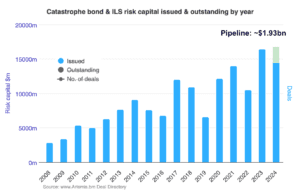How do I become a landlord in Portland Oregon?
How do I become a landlord in Portland Oregon?
Here are some tips on avoiding some of the key legal problems facing landlords in Oregon. Comply With Anti-Discrimination Laws. … Follow State Rent Rules. … Meet State Security Deposit Limits and Return Rules. … Provide Habitable Housing. … Prepare a Legal Written Lease or Rental Agreement. … Make Legally Required Disclosures. More items…
Do I need renters insurance?
You’ll only need renters insurance if your landlord or your building requires it. While not required otherwise, anyone renting any type of residence long-term — be it an apartment or single-family home — should strongly consider purchasing a renters insurance policy. 7 days ago
What is the difference between renters and homeowners insurance?
Homeowners insurance covers the actual building you live in (and associated structures such as garages). With renter’s insurance, the landlord will be expected to have coverage on the building, while your insurance will cover your personal property.
What is renters insurance cover?
Renters insurance is an insurance policy that can cover theft, water backup damage, certain natural disasters, bodily injuries and more in a rented property. If you rent an apartment, home or even a dorm, renters insurance is recommended for protecting your space and belongings in the event of a covered accident.
Why is Lemonade renters insurance so cheap?
Why is Lemonade home insurance so cheap? Lemonade Insurance offers low prices potentially because of the structure of its platform. Groups of customers pool their premiums into one collective pot that is drawn from when a claim needs to be paid out.
Why is Lemonade so cheap?
The company takes customer premiums and places them in a central pot, then uses that pot of money to pay out claims to other customers. Because Lemonade isn’t pocketing excess premiums as revenue, it lets the company offer coverage at a lower cost than other insurers.
Are long term side effects possible with the COVID-19 vaccine?
Benefits of Vaccination Outweigh the Risks Serious side effects that could cause a long-term health problem are extremely unusual following any vaccination, including COVID-19 vaccination.
Will a COVID-19 vaccine alter my DNA?
No. COVID-19 mRNA vaccines do not change or interact with your DNA in any way.
Is there anyone who shouldn’t get the vaccine?
See full answer You will be evaluated for any exclusion criteria prior to being vaccinated. If you have questions about the COVID-19 vaccine in relation to children, the elderly, people who are immunocompromised, and those with a significant history of allergic reactions, please consult your doctor. Please also note the waiting period for the following scenarios: If you’ve had COVID-19 monoclonal antibody therapy or COVID-19 convalescent plasma, you should not receive the COVID-19 vaccine until at least 91 days following treatment. You should not receive the COVID-19 vaccine until at least 15 days following any other vaccinations (e.g. flu, measles)
How long does the second COVID-19 booster vaccine stay effective?
The study, which was published in the New England Journal of Medicine on Tuesday, found that effectiveness against infection in the fourth week after the second booster shot was lower than protection mounted after the third vaccine dose. The protection drastically falls after eight weeks. 6 days ago
Do COVID-19 mRNA vaccines have long-term effects?
The Pfizer and Moderna vaccines were created using messenger RNA (or mRNA) technology, which has been used for about 10 years in cancer treatment, with no long-term effects detected. And even before that, scientists had been working with mRNA technology for years. 3. mRNA technology does not alter your DNA. Feb 1, 2022
Should I be concerned about the potential adverse reactions of COVID-19 vaccines?
The known risks of COVID-19 illness and its related, possibly severe complications, such as long-term health problems, hospitalization and even death, far outweigh the potential risks of having a rare adverse reaction to vaccination like myocarditis or blood clots. Mar 16, 2022
What exactly does the COVID-19 vaccine do to the body?
COVID-19 vaccines help our bodies develop immunity to the virus that causes COVID-19 without us having to get the illness.
Will a person with COVID-19 vaccine have a positive antibody test?
A COVID-19 vaccination may also cause a positive antibody test result for some but not all antibody tests. You should not interpret the results of your SARS-CoV-2 antibody test as an indication of a specific level of immunity or protection from SARS-CoV-2 infection. Feb 24, 2022
Can COVID-19 vaccine cause Antibody-Dependent Enhancement (ADE)?
There’s no evidence that the COVID-19 vaccines cause ADE. People who are vaccinated have a much lower risk of ending up in the hospital or dying from COVID-19. Nov 2, 2021





